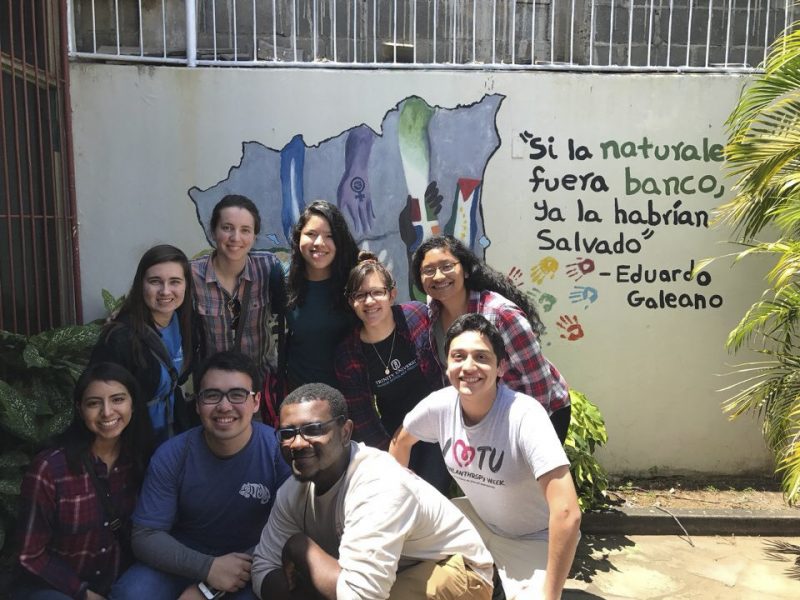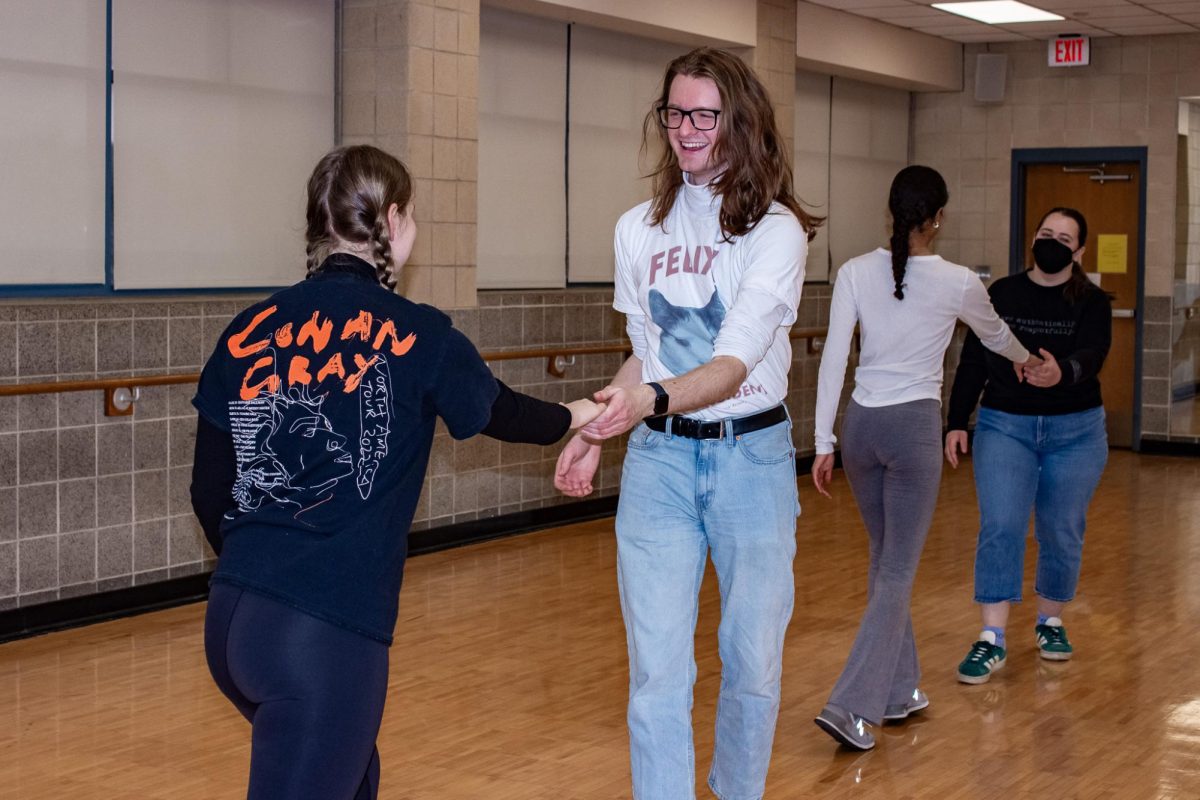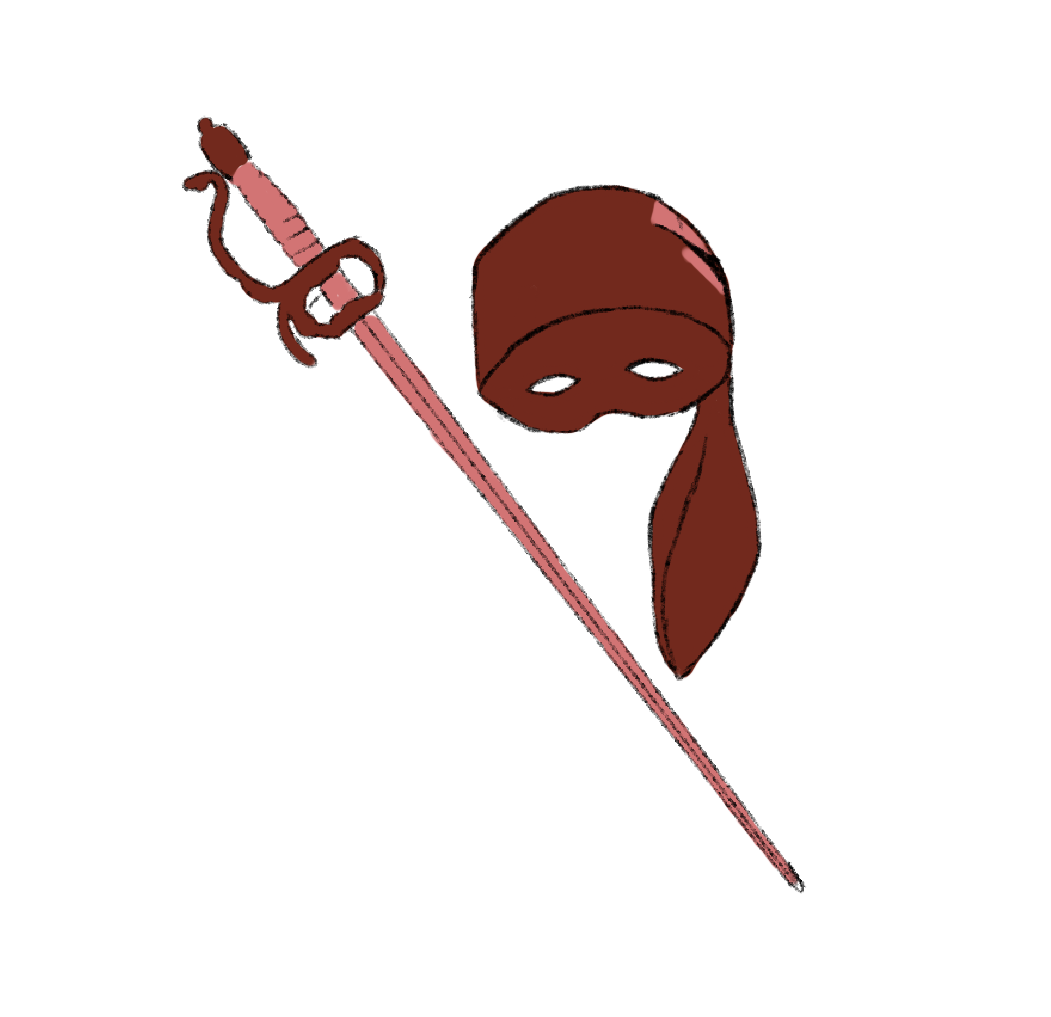Normally, spring break does not invoke images of cleaning, recycling or sleeping on church floors. But some Trinity students participated in spring break trips that had them do exactly that.
These students spent their week working with local, national and international organizations to learn more about the issues various communities are facing, and to work toward possible solutions.
SAN ANTONIO URBAN PLUNGE
Intervarsity is an international and interdenominational Christian campus ministry. This spring break, chapters of Intervarsity across the United States gathered in San Antonio to volunteer at local nonprofits and discuss their faith. Participants were also divided into groups that focused on teaching them about racial injustice and identity.
There were about 85 participants in total, including five members of Trinity’s own Intervarsity chapter, who attended for the first time last week. First-year Grace Yun volunteered at a local homeless shelter called Haven for Hope and spoke to people who were staying at the facility or using the services offered. The trip helped Yun see homelessness in a new light.
“I knew about the homelessness issue and the race issue and I knew about it because I read stuff,” Yun said. “But I never had to face these issues and see how what I believe in goes about to answer how this issue is solved.”
The New Orleans Tiger Breaks trip was centered around environmental justice in the city. Ten students spent one week volunteering for a total of 40 hours at different organizations, working to repair the effects of harmful practices to the environment.
Sophomore Kievan Boudreaux-Bostic attended the trip as a trip leader, choosing the organizations the group would go to. He enjoyed visiting New Orleans, where his family is from, and experiencing the culture.
“It was a good way for me to go back and give back to my community,” Boudreaux-Bostic said.
One of the most memorable volunteer opportunities for Boudreaux-Bostic was at Arc of Greater New Orleans, where volunteers helped organize ninety tons of Mardi Gras beads to be reused for next year’s celebration, minimizing the waste produced.
Arc of Greater New Orleans also employs people with developmental issues, working to foster an accepting community.
“I really liked that one because it was a nice merge between social justice and environmental justice,” Boudreaux-Bostic said.
On the newest student-led Tiger Breaks trip led by TUVAC, nine Trinity students traveled to Oklahoma City, completing 40 volunteer hours. Participants volunteered at the Salvation Army every morning, building relationships with fellow volunteers from the community.
Each afternoon, the group volunteered with different organizations, all of which focused on homelessness and poverty. The volunteers then attended alumni dinners and returned to Church of the Open Arms, where they slept each night.
Siddhant Shetty, first-year, was one of the trip’s leaders.
“It allows students to see an aspect of the community that maybe they are not exposed to. It provides an opportunity to actively engage within the community because, during school, we may not have a lot of time to do that,” Shetty said.
Another new facet to this Tiger Break trip was the addition of Jolie Nyamarembo, an AmeriCorp representative who works for TUVAC. She attended with the students, acting as their guide.
“You can give money and you can donate, but you don’t really see where that money is allocated. When you volunteer you can see where the need is. We were able to help them achieve their mission and take the baggage off of them,” Nyamarembo said.
NICARAGUA
Nine students and three faculty members traveled to Nicaragua to learn how the community, usually without governmental support, is combating environmental and social issues.
The professors that lead this trip, Richard Reed and Alfred Montoya, both from the sociology and anthropology department, worked with the Center for International Engagement to organize the trip. They also worked with MAS to create scholarships for students to go to Nicaragua.
The students were selected from International Issues in Health and the Environment, a class offered every other year within the sociology and anthropology department. In order to prepare for the trip, students took an additional credit hour class in which they learned about the geography and history of Nicaragua.
For 10 days, students traveled Nicaragua, talking to the people and at times staying in their homes. Alejandro Richard, sophomore, felt that the trip helped him better understand the material he was learning in class.
“I’ve always been knowledgeable of people in impoverished situations, but going there emphasized that not only is that true, but it can be true on a national level, not just individually or [on] a small population level,” Richard said.
Taylor Bolzer, sophomore sociology major, was particularly struck by the resilience of the people, especially the women of Managua, Nicaragua. These women developed a women’s clinic in response to health issues they observed in their community.
Although they had never had any formal training, the clinic now offers a variety of services, including prenatal care and birth control. Now, the clinic has gained limited government funding.
“Nicaragua is just resilient,” Bolzer said. “They might not be where they want to be right now, but they’re not going to stop.”







